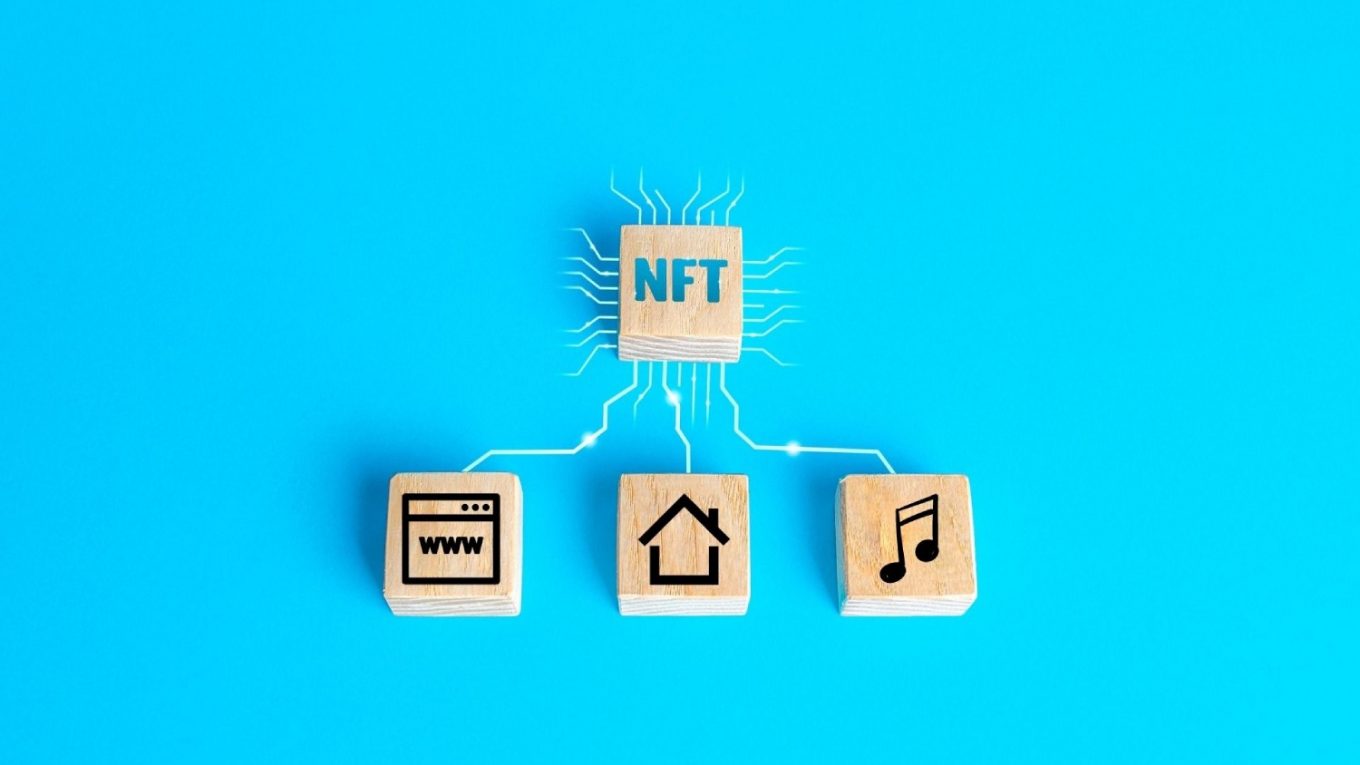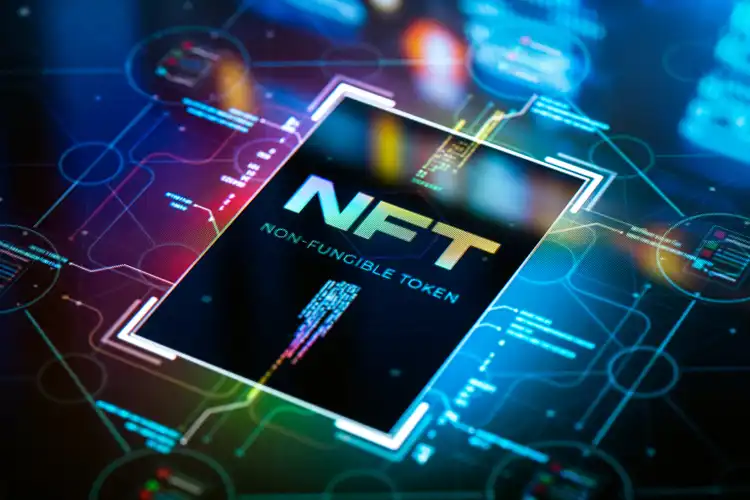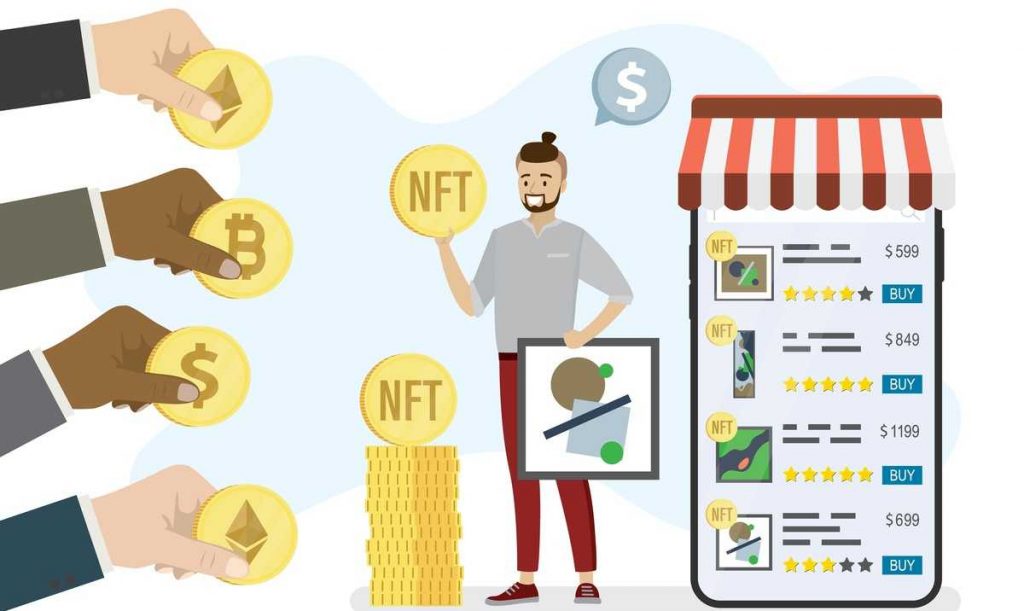How and where to store NFTs
As the owner of a multi-million dollar physical work of art, a Monet or a Van Gogh, you would likely spend a great deal of money and time selecting the right place for safekeeping.
The same applies to non-fungible tokens or NFT. They are not yet considered on the same level as the masterpieces of history’s greatest artists; However, some of them are worth thousands, millions of dollars. Learning how to store non-fungible assets can therefore be a very necessary exercise in order not to lose access to personal investments.
Read more: Where can I buy NFT tokens
Non-fungible tokens are not just works of art. They can represent anything from an artistic image or music/audio video to digital documentation, identification, academic credentials, car ownership, home ownership.
Why is it important to store NFTs properly?
In recent months, non-fungible tokens have become a valuable, rare commodity that attracts investors who have also become targets for hackers looking to steal digital artworks like NFT paintings or credit card information to buy more.
A few months ago, hackers stole thousands of dollars worth of assets from accounts on the NFT Nifty Gateway marketplace. The platform blamed the hack on consumers’ lack of two-factor authentication, which allowed hackers to easily identify user credentials and steal their assets.
Company security was not compromised. However, serious security concerns have rightfully been raised about leaving NFTs or other digital assets stored in these third-party solutions.
The famous mantra “Not your keys, not your cryptocurrency” can and should apply to NFTs as well.
Crypto enthusiasts will be familiar with the phrase, meaning if you don’t own your private keys, as is the case with storage on exchanges, you don’t own cryptocurrency. While cryptocurrency wallets previously only worked for crypto assets, with the development of NFTs, other types of crypto wallets were created specifically to store NFT data.
What types of storage are there?
When storing NFTs, security is just as important as it is with cryptocurrencies. Leaving them on an exchange (or marketplaces in the case of NFTs) exposes you to potential hacks, exchange fraud, or single points of failure.
Blockchain-based storage is decentralized and, unlike centralized storage of digital assets, is much more secure and offers owners complete sovereignty over their property. In addition, it offers several solutions for greater security.
It should be remembered that you do not store NFTs or cryptocurrencies in your wallet. Instead, the wallet guarantees access to the investments stored on the blockchain via a private key.
With a private key, you effectively own the cryptographic address and everything in it. However, when your digital asset is online, it remains vulnerable to hacking.
Therefore, it is important to store and store NFTs in offline cold storage solutions, which means they are stored on a platform that is not connected to the internet and therefore less vulnerable to tampering, cyberattacks and other common vulnerabilities from using the internet associated data is.
The best way to keep NFTs offline is to buy a hardware cold storage wallet and transfer digital assets to it. By staying offline, the wallet protects against hackers and keyloggers who can’t do much to access it. Additionally, each hardware wallet comes with an ID and password for added security.
Before users dive into different solutions, they can take some steps to keep their privacy and avoid being attacked by hackers and thieves.
When choosing storage options for NFTs, it is important to ensure compatibility with the various channels and marketplace used to buy and sell NFTs. You also want to make sure the wallet is secure and has a user-friendly interface.
Since most NFTs are based on Ethereum, care should be taken to ensure that the wallet is compatible with the Ethereum blockchain.
Solutions like Metamask are online and therefore vulnerable to hacking. They have already been hacked and may actually be compromised in the future. Always pay attention to the original and approved app because many fake Metamask apps have already scammed users.
Enjin Wallet, with a market size of $10.3 million, is another software solution for storing cryptocurrency and creating, distributing and integrating NFTs. It also supports Defi and Ethereum and will soon be integrated into Samsung S10 smartphones as the official NFT wallet app.
The Math Wallet offers an impressive array of built-in support for over 70 public blockchains. In addition, the Trust wallet supports many blockchains and functions as a DeFi, crypto and NFT wallet.
Coinbase recently announced the creation of a peer-to-peer marketplace that will allow NFT holders to mint, buy, view, and manage their assets.
Cold storage hardware wallet
If NFT holders want to increase asset security, they should consider purchasing a hardware wallet that allows for cold (offline) storage. This means the private keys that allow users to access their digital assets are stored in a tamper-proof hardware wallet, not on the internet where they are vulnerable.
A hardware wallet offers additional security since two-factor authentication is always activated. Without physical access to the wallet, it is impossible to hack and steal the contents. The most popular hardware wallets are Trezor and Ledger. By the way, wallets do not contain any graphics or cryptocurrencies. However, they store private keys that allow users to access the assets they store online.
Ultimately, owning collectibles or any other digital asset should not cause a headache or security concerns.
Nowadays there are options for every need, from expensive solutions to cheap online platforms that guarantee a relatively safe environment. Options like hardware wallets can be more expensive, but the increased security they offer can be beneficial for investors holding large amounts of NFTs.


